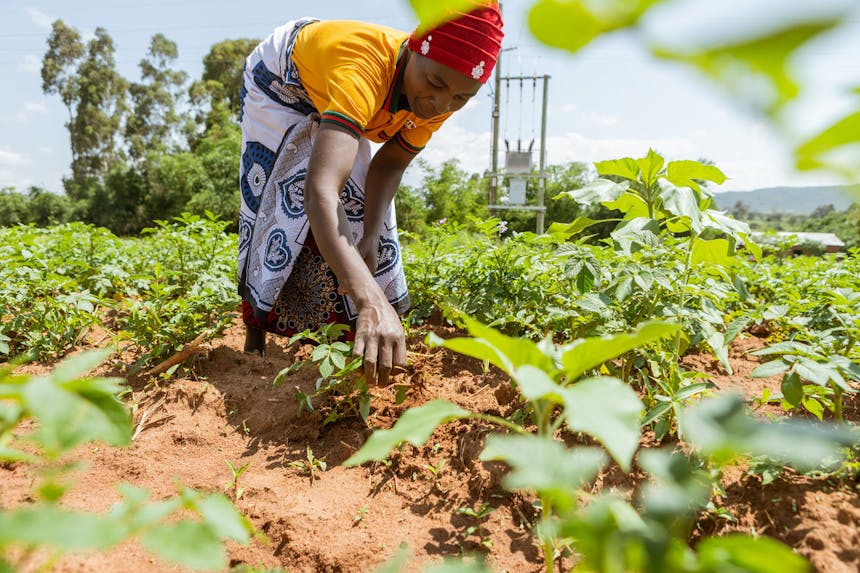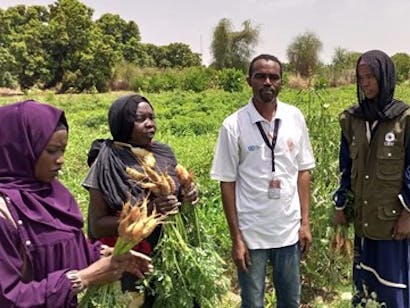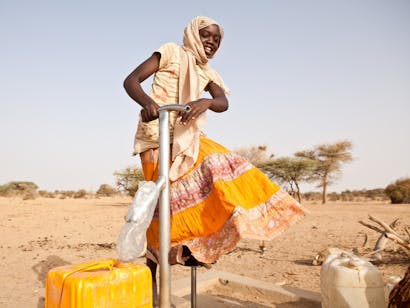Upscaling climate-smart agriculture practices among small-scale farmers in rural Tanzania
Based on several studies on upscaling climate-smart agriculture (CSA) practices among small-scale farmers in rural Tanzania, together with our partner Wageningen University, we developed two info notes.

The research validates that membership of a Village Savings and Loan Association (VSLA) increases farmers’ likelihood of adoption of good practices and that, when women are involved in decision-making on couples’ investments, the labour efficiency of those investments increases, while the level of risk taken reduces.
The findings stress the value of gendered investigation of risk preferences. Where women are more risk averse than men, they may underinvest in promising (new) practices they perceive as risky or uncertain. Not changing practices may be perceived as safe and predictable, but may result in lower yields, and may inhibit women from responding to changed circumstances (e.g., climate change).
One of several conclusions is that it is necessary to design interventions that encourage risk taking and risk assessment among women, and that respond to the factors determining women’s perceptions of risk. This may be achieved through analysing why women perceive certain practices as risky, providing specific information to build confidence, manage hesitations and help to re-assess risks and make no-regrets decisions.
Increasing women farmer’s awareness of and knowledge about the risk-reducing benefits of certain practices can stimulate their adoption. Farmers’ Field and Business Schools (FFBS) can be a safe space for risk experimentation and Participatory Scenario Planning can be used as a tool to support farmers in assessing risks and taking informed decisions.
The first Info Note: Upscaling climate-smart agriculture practices
Upscaling climate-smart agriculture practices: working with Farmers’ Field and Business Schools and Village Savings and Loan Associations in rural Tanzania – summarises findings and policy recommendations on upscaling CSA practices.
Key findings:
- Combining CARE’s FFBS and VSLA models increases the adoption of climate-smart agriculture practices among small-scale farmers in Iringa Region, Tanzania.
- 66% of farmers, however, chose not to cultivate soybean for the market or for household consumption.
- Reasons for low adoption of soybean include lack of access to seeds, climate variability and change, and lack of access to markets.
The second Info Note: Gender considerations
Gender considerations in the promotion of climate-smart agriculture practices: Evidence from rural Tanzania – summarises findings on the gender dimensions of promoting CSA practices.
Key findings:
- Women’s empowerment is positively associated with the adoption of CSA practices in Iringa Region, Tanzania.
- VSLA membership also increases farmers’ likelihood of adoption of CSA practices and contributes to the leadership dimension of women’s empowerment.
- When women are involved in decision-making on couples’ investments, the labour efficiency of those investments increases, while the level of risk taken reduces.
- Scaling out VSLAs in small-scale farmer communities is a promising way to increase CSA adoption and women’s empowerment.


